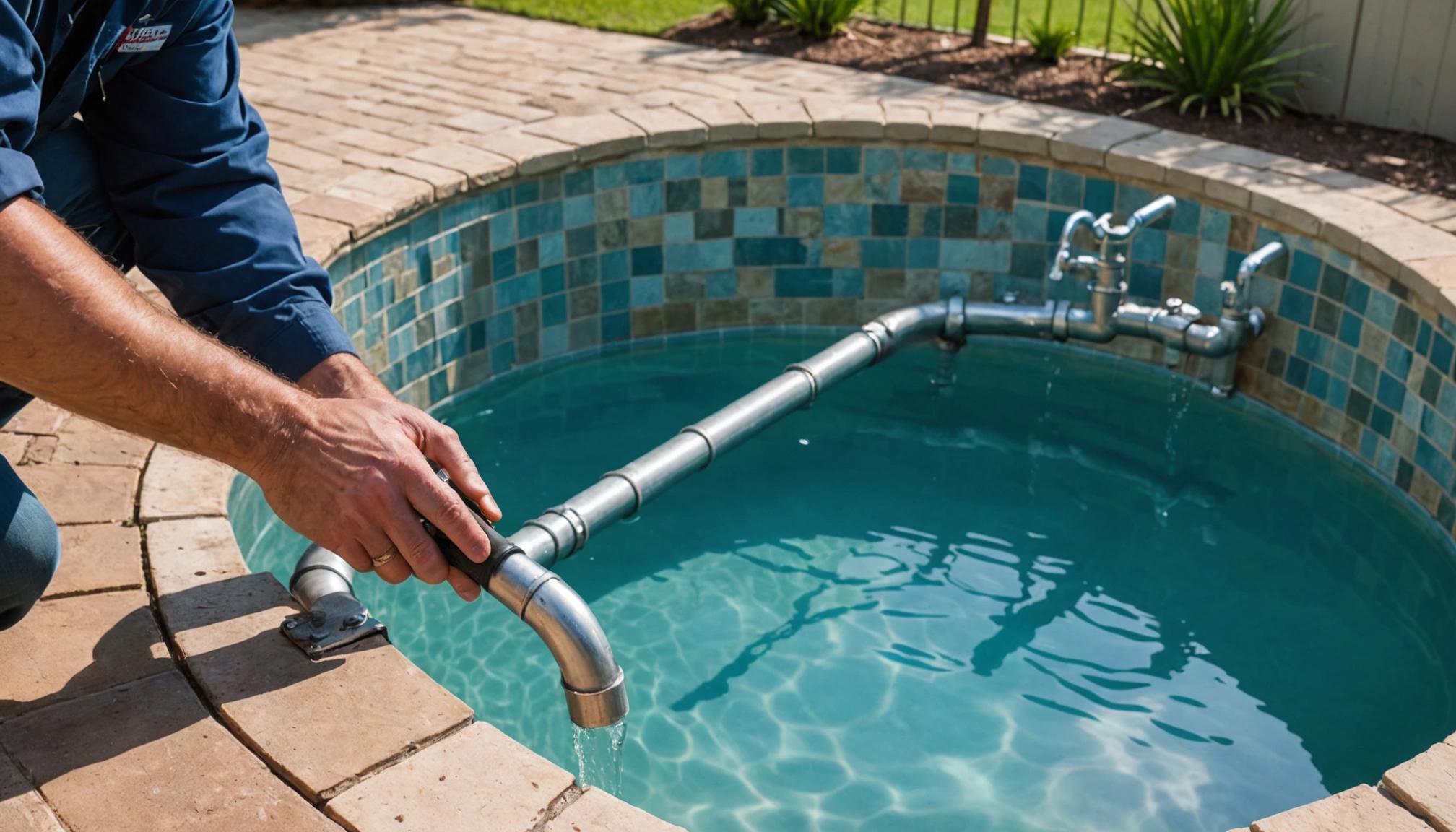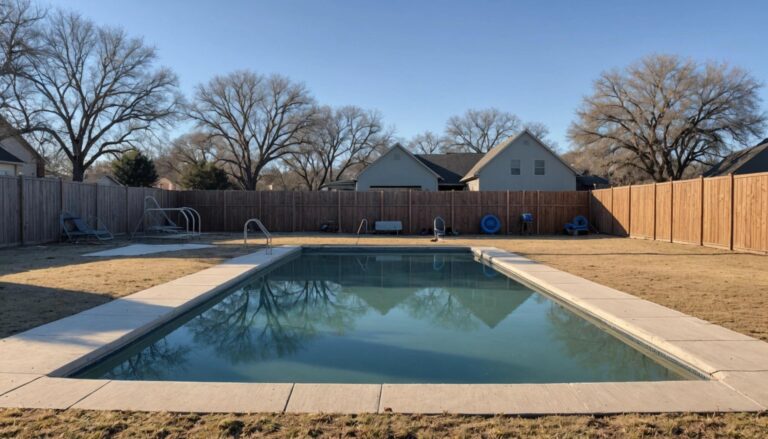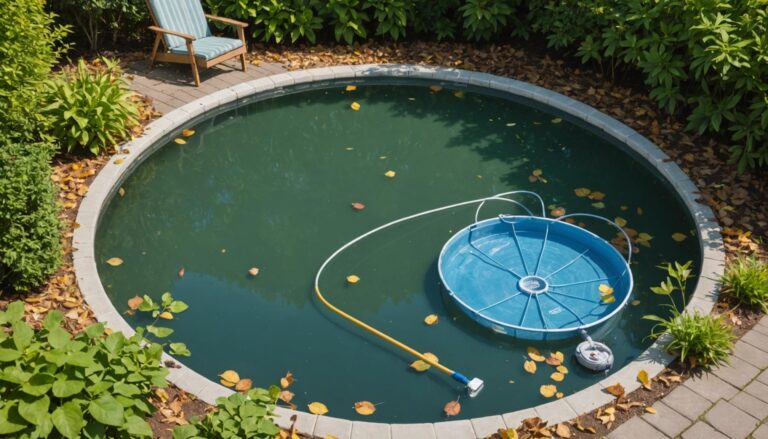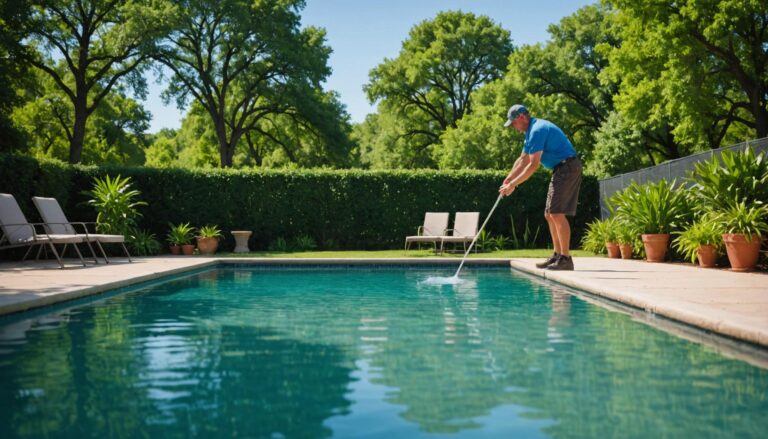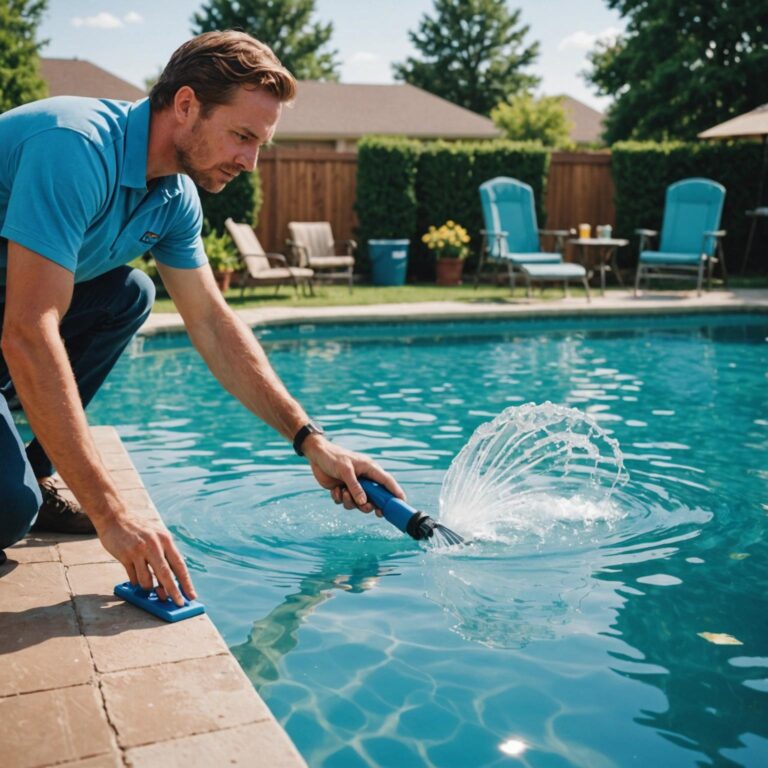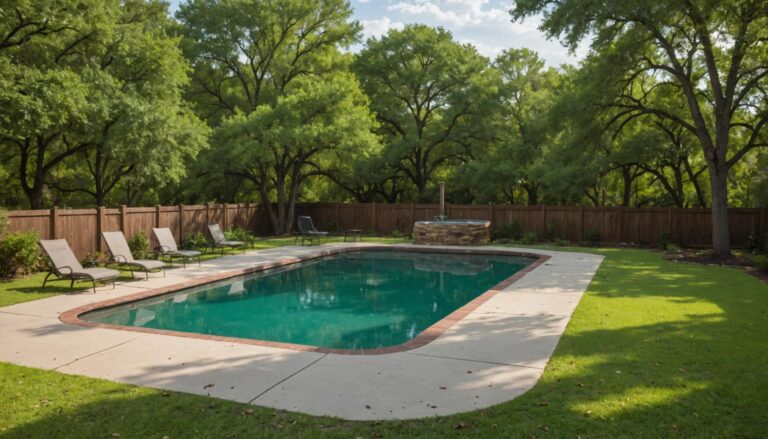Common Causes of Pool Plumbing Leaks in Texas (Expert Solutions)
Are you concerned about pool plumbing leaks, especially in the scorching heat of Texas? As the trusted team at Blue Shade Pools, we understand how frustrating these leaks can be and have the expertise to guide you through identifying common causes and expert solutions. With our comprehensive services, ranging from pool cleaning to pool leak detection, we’ve got all your pool needs covered.
In this article, we’ll dive into the most common causes of pool plumbing leaks in Texas, how weather conditions can impact your pool’s plumbing system, and more. Join us on this splash-worthy journey to ensure your pool remains leak-free and swim-ready all year round!
What Are the Most Common Causes of Pool Plumbing Leaks in Texas?
Pools are a staple in Texas backyards, but they also come with their unique set of challenges. Plumbing leaks can be a headache for many pool owners. Understanding what causes these leaks can help address them promptly and prevent future issues.
Many factors contribute to plumbing leaks in pools—especially in a climate as demanding as Texas. Here’s a look at some prevalent causes:
- Ground Shifting: Texas is known for its volatile soil conditions. This constant shift can easily lead to cracks in pool plumbing.
- Tree Roots: Trees are common in Texas landscapes, but their roots can grow towards moisture and wrap around or even enter pipes, causing blockages or breaks.
- Poor Installation: Inadequate installation or poor-quality materials can lead to leaks. Always ensure professional installation with high-grade components.
- Age and Wear: Over time, pipes and fittings naturally wear out. This is especially true with older pools where materials degrade, leading to susceptibility to leaks.
- Water Chemistry: Imbalanced chemicals can corrode pipes and various plumbing components, causing them to weaken and eventually leak.
Recognizing these causes can help maintain the integrity of your pool’s plumbing. For those experiencing issues, professional pool plumbing repair in Watauga, TX is available to address and resolve these challenges effectively. Up next, we’ll explore how Texas weather conditions can further exacerbate these plumbing challenges.
How Can Weather Conditions Affect Pool Plumbing in Texas?
In Texas, the weather is nothing short of unpredictable. From scorching summers to occasional cold snaps, these varying conditions can significantly impact your pool’s plumbing. Extreme heat is often the norm (especially in regions like Central Texas), causing pool water to evaporate quickly. This rapid evaporation can lead to imbalances in your pool’s chemical levels and pressures on plumbing systems.
Then, there are the spurts of cold weather. While freezing temperatures might not be frequent, when they do hit, they can wreak havoc. Pipes and equipment can freeze, expand, and subsequently crack—leading to leaks or bursts once they thaw. It’s the unfortunate reality for many homeowners not prepared for unexpected cold spells.
On top of all this, heavy rainfall or storms also present challenges. When Texas skies open up, they can overload your pool system with too much water, affecting its balance and potentially straining the plumbing components. To effectively manage these impacts, regular maintenance and proper winterization (when needed) become essential practices. For those experiencing issues such as leaks, professional pool leak detection services in Watauga, TX can be invaluable.
What Signs Indicate a Pool Plumbing Leak?
Pool plumbing leaks can be tricky to spot, but catching them early can save you a lot of hassle and expense. Leaks don’t just waste water—they can affect your pool’s overall performance and cause damage over time.
Here are some telltale signs that your pool might be leaking:
- Unexplained Water Loss: If you notice the water level in your pool dropping faster than the rate of evaporation, it could be due to a leak.
- Wet Spots Around the Pool: Persistent damp areas or even puddles near your pool are strong indicators of leaks in underground plumbing.
- Increased Water Bills: A sudden spike in your water bill without an apparent reason could mean your pool is leaking water.
- Air in the System: If your pool pump is sucking in air, you might see bubbles coming from the return jets or hear unusual sounds from the pump.
- Loss of Prime: When your pool pump continually loses prime, it’s often a sign of a leak in the suction side of your system.
- Cracks in the Pool Deck: Leaks can cause soil to shift, leading to cracks in the surrounding deck or even more severe structural issues.
When you notice any of these signs, it’s important to act quickly. Early detection and repair can prevent more extensive (and expensive) problems down the line. Next, we’ll dive into how you can locate these pesky leaks in your pool’s plumbing system. For professional assistance, explore pool plumbing repair services in Southlake, TX.
How Can I Locate a Leak in My Pool’s Plumbing System?
Locating a leak in your pool’s plumbing can seem daunting, but it’s an essential step to prevent further damage and higher costs. With some detective work and patience, you can identify the leak’s source and take appropriate action before calling in the pros.
Start by conducting a systematic check to pinpoint possible problem areas. Here’s how:
- Perform the Bucket Test: This is a simple way to determine if your pool is losing water due to evaporation or a leak. Fill a bucket with water, place it on a pool step, and mark the water levels inside the bucket and in the pool. After 24 hours, compare the two levels—the pool should lose water at the same rate as the bucket.
- Inspect the Equipment Area: Check the pump, filter, heater, and valves for signs of leakage, such as damp spots, water dripping, or rust. Fixing issues here can be as easy as tightening a connection or replacing a faulty seal.
- Examine the Pool Structure: Look around the pool’s edges and walls for any cracks or wet spots, which might indicate a structural leak. Pay special attention to the skimmers, jets, and underwater lights.
- Dye Test: Use pool leak detection dye to pinpoint leaks around fixtures or suspected areas. Turn off the pool pump, and release a small amount of dye near suspected leaks. If the dye is drawn into a crack or crevice, you’ve found your leak.
- Check the Pool Shell: For concrete or gunite pools, inspect the shell for visible cracks. Vinyl liners might show signs of wear, tears, or separations that’s causing the leak.
- Test the Plumbing Lines: This involves closing off different sections of the pool plumbing and pressurizing them with air or water to see if there’s a drop in pressure—indicating a leak in that section. For more detailed information on potential causes of pool plumbing leaks, you can explore additional resources.
Regular inspection and immediate action can prevent minor leaks from becoming major headaches. If you’re uncertain or unable to fix the problem, don’t hesitate to seek professional help.
What Expert Solutions Are Available for Fixing Pool Plumbing Leaks?
Professional Leak Detection Services
Finding leaks in a pool’s plumbing can be challenging—especially without the right tools or experience. Professional leak detection services employ advanced technologies like electronic listening devices and pressure testing to accurately locate leaks. By pinpointing the issue, they help to reduce unnecessary digging or disruption to your pool area. This efficiency saves time and money in the long run. For more detailed information, consider these pool leak detection tips.
Pipe Repair and Replacement
Once a leak is located, addressing it promptly is CRUCIAL to prevent further damage. Experts may perform repairs using high-quality materials for durability. In cases of extensive damage, full pipe replacement might be necessary. Specialists ensure the correct materials and techniques are used for a long-lasting fix, restoring your pool plumbing to optimal condition.
Skimmer and Return Line Repair
Skimmers and return lines are common culprits for leaks. Experts can reseal or replace these components to ensure a tight, leak-free system. They assess the condition of these parts, carry out precise repairs, and may even suggest upgrades to improve efficiency and prevent future leaks.
Using Advanced Sealants and Epoxy Injection
For minor leaks, applying advanced sealants or utilizing epoxy injection techniques can be effective. These solutions seal small cracks and gaps without the need for extensive excavation. Experts choose the right product based on leak location and plumbing material, ensuring a reliable seal and minimizing downtime for pool use.
Regular Maintenance Checks
Prevention is always better than cure. Regular maintenance checks by plumbing experts can help identify potential issues before they turn into major leaks. Routine inspections and servicing, such as checking pressure levels and inspecting joints, valves, and seals, keep the system running smoothly and extend the life of your pool’s plumbing.
How to Prevent Future Pool Plumbing Leaks in Texas
Maintaining your pool plumbing is essential to prevent future leaks—especially in Texas, where the weather can be unforgiving. High temperatures and environmental changes can stress plumbing systems. Here are some practical steps to nip potential problems in the bud and keep your pool pristine.
- Regular Inspections: Schedule frequent plumbing inspections to catch and address wear and tear before it escalates.
- Monitor Water Chemistry: Keeping the pH levels balanced prevents corrosion, which can damage pipes over time.
- Manage Pressure: Avoid excessive pressure on the plumbing system by ensuring filters and pumps aren’t clogged or overworked.
- Winterize Your Pool: During colder months, properly close and winterize the pool to protect pipes from freezing and damage.
- Check for Tree Roots: Be vigilant about plant growth near pool lines; roots can invade and damage pipes if unnoticed.
- Use Quality Materials: Invest in high-quality materials when repairing or replacing plumbing to enhance durability.
- Seal Leaks Immediately: Address leaks as soon as they’re detected to prevent them from worsening and causing further damage.
- Seek Professional Help: For complex plumbing tasks, hire a qualified pool professional to ensure the work is done accurately and safely.
By being proactive and attentive, you can extend the life of your pool plumbing and save on costly repairs in the future. Take these preventive measures to enjoy a worry-free swimming experience.
Conclusion
Addressing pool plumbing leaks promptly can save you time, money, and unnecessary frustration, especially given the common challenges faced by pool owners in Texas. Whether it’s due to shifting soil, high water pressure, or aging infrastructure, understanding these common causes can help you maintain your pool effectively. Ensuring your pool’s plumbing is in optimal condition can greatly enhance your swimming experience while preserving the longevity of your investment.
At Blue Shade Pools, we specialize in pool plumbing repair and leak detection in Fort Worth and surrounding areas, including Hurst, Keller, and Arlington. Our expert team, led by Joao Contessoto, is dedicated to providing reliable and efficient solutions for all your pool maintenance needs. Don’t let a small leak turn into a major hassle—contact us today at 817-770-9524 or email us at info@blueshadepools.com. Enjoy peace of mind knowing your pool is in the best hands with Blue Shade Pools.

